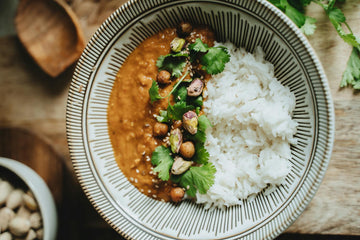Winter brings cozy evenings and festive cheer, but it also increases the risk of illnesses like the flu and the common cold. With colder temperatures weakening immune responses and viruses thriving in low humidity, it’s crucial to prepare your body to fight off infections. Strengthening your immune system during winter isn’t just about staying healthy—it’s about thriving.
In this guide, we’ll explore 10 science-backed strategies to boost your immunity and keep illnesses at bay.
1. Eat Immune-Boosting Foods
Your diet plays a vital role in enhancing your immune system. Incorporate these key nutrients:
- Vitamin C: Found in oranges, kiwis, bell peppers, and broccoli, vitamin C supports white blood cell function, helping your body combat infections.
- Vitamin D: With reduced sunlight in winter, levels of this immune-boosting vitamin often drop. Foods like fortified cereals and fatty fish or supplements can help maintain optimal levels.
- Zinc: Nuts, seeds, legumes, and whole grains are excellent sources. Zinc is essential for immune cell function and may reduce the duration of colds.
- Probiotics: Fermented foods like yogurt, curd, sauerkraut, and kimchi support gut health, which is closely linked to immunity.
- Antioxidants: Dark chocolate, green tea, and berries combat oxidative stress, helping immune cells function more effectively.
2. Stay Hydrate
Cold weather often reduces thirst, but hydration is essential. Water flushes toxins, keeps mucus membranes moist, and supports immune cell movement. Drink warm herbal teas, broths, or plain water to stay hydrated.
3. Keep Moving with Regular Exercise
Moderate exercise enhances circulation, helping immune cells travel efficiently. Activities like yoga, walking, and swimming reduce inflammation and support immune function. Avoid over-exercising, as it can suppress immunity temporarily.

4. Prioritize Quality Sleep
Sleep is critical for immune function. During deep sleep, your body produces cytokines—proteins that fight inflammation and infections. Adults should aim for 7–9 hours of uninterrupted sleep.
5. Manage Stress
Chronic stress elevates cortisol levels, suppressing immune responses. Combat stress with mindfulness techniques, meditation, or breathing exercises. Studies show that managing stress boosts natural killer cells, a key component of your immune defense.
6. Take Smart Supplements
Supplements can help fill nutritional gaps, especially during winter. Consider the following:
- Vitamin C: Reduces the duration and severity of colds.
- Vitamin D: Helps prevent respiratory infections.
- Elderberry Extract: Known for reducing flu symptoms.
- Echinacea: May shorten the duration of colds.
Always consult a healthcare provider before starting any supplements.
7. Maintain Good Hygiene Practices
Winter is peak flu season, so hygiene is essential:
- Wash hands frequently with soap and water.
- Avoid touching your face, especially your eyes, nose, and mouth.
- Disinfect high-touch surfaces regularly.
Using a humidifier can also help maintain optimal indoor humidity levels, reducing respiratory irritation.
8. Maximize Sunlight Exposure
Shorter winter days often mean reduced sunlight, affecting vitamin D production. Spend time outdoors during daylight hours, even if it’s cold. For those in low-sunlight regions, light therapy boxes or vitamin D supplements can help.
9. Add Immune-Boosting Herbs and Spices
Incorporate these herbs into your winter diet for added protection:
- Ginger: Supports immunity with its anti-inflammatory and antimicrobial properties.
- Turmeric: Contains curcumin, a compound that enhances immune responses.
- Garlic: Has natural antiviral properties that reduce the severity of colds and flu.
Drink herbal teas with these ingredients for a warming, immune-boosting effect.

10. Get Vaccinated
Vaccination remains one of the most effective ways to protect against flu and other respiratory illnesses. Ensure you’re up-to-date with your flu shot and any other recommended vaccinations.
Conclusion
Winter doesn’t have to mean falling sick. By nourishing your body with immune-boosting foods, staying active, managing stress, and practicing good hygiene, you can keep illnesses at bay. Don’t forget to prioritize sleep and consider supplements or herbal remedies for extra support.
With these strategies, you’ll not only strengthen your immunity but also enjoy a vibrant, illness-free winter season.
Take charge of your health this winter—your immune system will thank you!

References:
References:
- National Institutes of Health. (2020). Vitamin C and Immune Function. National Institute of Health.
- BMJ. (2017). Vitamin D and respiratory infections. BMJ.
- Nutrients. (2017). Zinc and its effect on immune function. Nutrients Journal.
- Frontiers in Immunology. (2020). Probiotics and Immune Function. Frontiers in Immunology.
- Exercise Immunology Review. (2019). Exercise and immune response. Exercise Immunology Review.
- Sleep. (2015). Sleep and immune response. Sleep Journal.
- Psychoneuroendocrinology. (2016). Stress management and immune function. Psychoneuroendocrinology.
- The Journal of Clinical Medicine. (2019). Vitamin C and immune function in colds. The Journal of Clinical Medicine.
- Phytomedicine. (2015). Elderberry for reducing cold and flu symptoms. Phytomedicine.
- Phytomedicine. (2015). Echinacea and respiratory infections. Phytomedicine.
- Journal of Medicinal Food. (2013). Ginger and immune function. Journal of Medicinal Food.
- Phytotherapy Research. (2013). Turmeric and immune modulation. Phytotherapy Research.
- Advances in Therapy. (2016). Garlic and immune health. Advances in Therapy.
- National Institutes of Health - Flu Vaccination. (2021). Flu vaccination for prevention. NIH.












